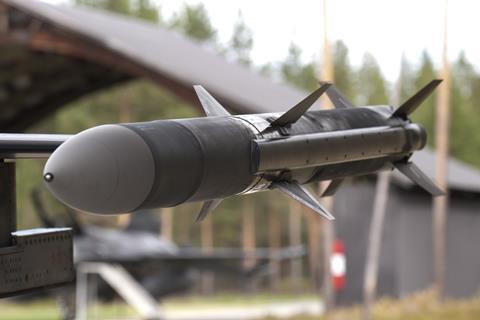Coming off a historic sales year for the US defence industry, the Trump Administration is seeking to make it easier for arms manufacturers to sell their wares overseas.
President Donald Trump’s executive order directs the defence and state departments to find ways of streamlining the labyrinthine Foreign Military Sales (FMS) approval process and perhaps make more products available for the less burdensome option of direct commercial sales.
This is far from the first time such an effort has been undertaken. Both the Biden Administration and the first Trump Administration from 2016 to 2020 launched efforts to reform the FMS system.
But the latest attempt comes as traditional US allies question Washington’s reliability – both as an ally and a supplier of weapons.

Leaders in Canada and Portugal have openly questioned the wisdom of buying American fighter jets while a mercurial commander-in-chief wields threats and trade sanctions with reckless abandon.
In fewer than 100 days in office, Trump has wantonly slapped trade sanctions on friends and adversaries alike, and openly suggested taking control of territory belonging to NATO allies Canada and Denmark.
Japan’s foreign minister Takeshi Iwaya recently described US trade policy as “changing like a daily menu”, while one opposition lawmaker in the National Diet referred to Washington as a “delinquent kid extorting someone”, according to published translations.
Industrial competitors have seized the opportunity to promote their own manufacturers.
French President Emmanuel Macron recently declared that any buyers feeling uneasy about the US-made Lockheed Martin F-35 stealth fighter should buy Rafales from France’s Dassault instead. Belgium has affirmed its commitment to acquiring the F-35, but recently suggested Brussels would prefer to assemble new aircraft in Italy over Texas.
So will foreign buyers take advantage of any new fast track for arms sales Washington rolls out?
The short answer is likely yes.
A blockbuster 2023 report by the French Institute for International and Strategic Affairs found 78% of the EU’s defence procurement spending went to suppliers outside the bloc, with 63% of expenditures routed to US manufacturers.
Subsequent analysis from the London-based International Institute for Strategic Studies gave a lower estimate of 48% of procurement spending going to non-EU suppliers, with American firms receiving 34%.
Regardless of the exact figure, the USA will likely remain a key supplier of arms globally, particularly in the realm of long-range guided weapons. Major suppliers like Lockheed and Raytheon have invested billions of dollars to expand production capacity and even restart shuttered lines, reversing a decades-long trend.
Although Western-aligned powers in Europe and Asia are growing their capability to produce advanced systems such as fighters and uncrewed aircraft, the USA will likely remain a dominant source for essential items like turbofan engines, special mission aircraft and long-range precision munitions.
Various examples of these have proven essential to striking Russian ground targets in Ukraine, defending the skies over Ukrainian cities, and protecting naval ships under attack in the Red Sea.
Last September, Raytheon notched its largest-ever single order for the venerable AIM-120 AMRAAM air-to-air missile, covering some $1.2 billion-worth of munitions for a dozen countries around the world, plus US services.
More recent months have seen separate approvals for multi-billion-dollar AMRAAM sales to Japan and Australia.
Maintaining large stockpiles of these munitions is now seen as essential to establishing a credible deterrent against aggression from the so-called “Axis of Autocracy”, as described by the Pentagon’s top Indo-Pacific officer Admiral Samuel Paparo in February.
For the time being, American companies – via the FMS system – are likely to remain the West’s dominant supplier of those weapons.
For more on this and other military aviation topics, visit FlightGlobal’s defence landing page.























